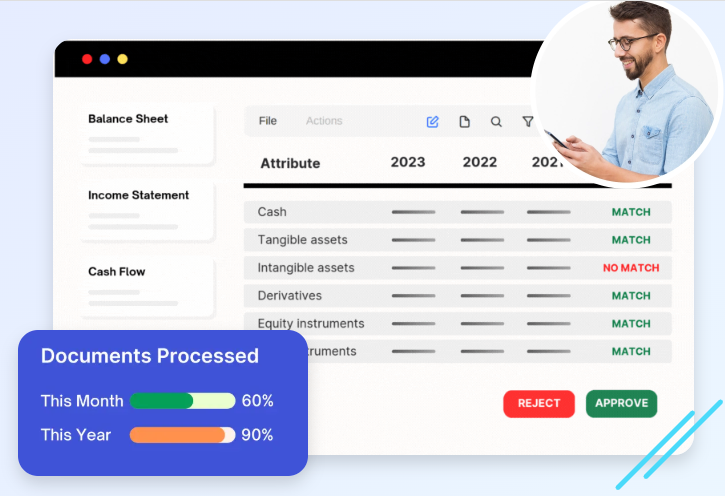Relevant Life Insurance for Directors: A Comprehensive Guide to Benefits, Tax Savings, and Compliance
Directors in today’s corporate landscape are constantly seeking ways to enhance employee benefits while managing costs and ensuring compliance. A notable option gaining traction is relevant life insurance for directors. This type of policy allows companies to offer life cover to directors and key employees in a tax-efficient manner. Not only does this benefit individual employees, but it also enhances the company’s ability to attract and retain top talent, an essential factor in today’s competitive environment.
In this guide, we’ll cover everything you need to know about relevant life insurance: its advantages, tax implications, who is eligible, and why it is particularly beneficial for directors and contractors. By the end, you’ll have a solid understanding of how relevant life insurance works and whether it could be a valuable addition to your corporate benefits package.
What is Relevant Life Insurance?
Relevant life insurance is a form of term life insurance offered by employers to provide death-in-service benefits for individual employees, often directors or high-earning personnel. Unlike a standard group life policy, relevant life insurance is set up as a single, standalone policy for each insured employee. Should the insured employee pass away during the policy term, the policy will pay a tax-free lump sum to their nominated beneficiaries, such as family members.
This type of insurance is commonly chosen by directors and business owners because it offers considerable tax benefits compared to traditional life insurance policies. It’s designed specifically for small businesses that may not be able to justify or afford a group life insurance policy for all employees, making it ideal for companies looking to cover select individuals in high-responsibility roles.
Key Benefits of Relevant Life Insurance for Directors
There are several compelling reasons for directors to consider relevant life insurance, particularly in terms of tax efficiency and employee value.
- Tax Efficiency
Relevant life insurance policies are structured to be tax-deductible for the business, which means the premiums can be considered a business expense. Additionally, the benefit paid to beneficiaries is typically free from income tax, capital gains tax, and inheritance tax, provided it’s written in trust. - Personal Savings
With a relevant life policy, directors can avoid paying for personal life insurance from post-tax income. Instead, the premiums are covered by the business, resulting in significant personal savings. This can be especially valuable for directors in higher tax brackets. - Enhanced Employee Benefits
Relevant life insurance serves as an attractive employee benefit for key personnel. For businesses aiming to attract and retain top talent, offering a relevant life insurance policy can set the company apart in a competitive market. It’s a tangible way to show commitment to employees’ wellbeing. - Flexibility for Small Businesses
Traditional group life insurance plans often have minimum employee requirements that smaller businesses may not meet. Relevant life insurance allows smaller companies to provide life insurance benefits without the need to adopt a larger-scale group scheme.
How Relevant Life Insurance Works
A relevant life insurance policy is owned and paid for by the employer. The company is responsible for paying the policy premiums, and the life cover is held in a discretionary trust. This structure ensures that, in the event of a payout, the benefit will go directly to the employee’s beneficiaries, free from potential inheritance tax liabilities.
When an employee passes away while covered by the policy, the payout is directed into the trust, which then distributes the funds to the nominated beneficiaries. This makes the process straightforward and ensures the funds reach the intended recipients in a timely manner.
Tax Benefits of Relevant Life Insurance
Relevant life insurance offers several tax benefits, both for the business and the policyholder.
- Corporation Tax Relief
Premiums paid by the business for relevant life insurance policies are generally considered tax-deductible expenses, provided they meet certain conditions, such as being “wholly and exclusively for the purpose of the trade.” - No National Insurance Contributions
Neither the business nor the employee is required to pay National Insurance contributions on relevant life policy premiums. This is advantageous compared to traditional life insurance policies where personal contributions would incur additional charges. - No Benefit-in-Kind Tax for Employees
Since the policy premiums are paid by the employer and not counted as a benefit-in-kind, employees do not face any additional personal tax liabilities, making it a cost-effective life insurance solution for directors. - Inheritance Tax-Free Payouts
When placed in trust, the benefit paid out from a relevant life policy can be free from inheritance tax. This means that the entire sum can go directly to the beneficiaries without deductions, providing substantial financial support during difficult times.
Eligibility and Suitability of Relevant Life Insurance for Directors
Relevant life insurance is available to small business owners, directors, and high-earning employees who want the advantages of life insurance with tax savings. This policy is particularly suitable for:
- Company Directors: As a company director, you may prefer a policy that doesn’t impact your post-tax income and offers personal savings.
- High Earners: Relevant life insurance provides life cover without increasing the employee’s tax burden, making it ideal for high earners looking to maximize their benefits.
- Contractors and Consultants: Many independent contractors who operate via limited companies can also benefit from relevant life insurance, as it allows them to take advantage of tax-deductible premiums.
Setting Up Relevant Life Insurance
The process of setting up relevant life insurance involves several key steps:
- Select a Suitable Provider
Numerous insurance providers offer relevant life policies, each with varying terms, premiums, and coverage options. Choose a provider with a reputation for supporting small businesses and offering comprehensive coverage. - Define Policy Terms
Decide on the duration of the policy, the amount of cover, and any additional features. It’s essential to align these terms with the company’s objectives and the employee’s personal needs. - Set Up a Trust
A relevant life policy must be held in trust to ensure the payout is tax-free and reaches the right beneficiaries. This trust structure should be set up when the policy is purchased, and trustees should be appointed to manage the funds. - Complete Documentation
Provide any necessary documentation to the insurer, such as information about the company, the insured employee, and the chosen beneficiaries. This ensures the policy is compliant and correctly aligned with tax regulations.
Is Relevant Life Insurance Right for Your Business?
Relevant life insurance is ideal for companies that want to offer a tailored life insurance benefit to specific employees. If you’re a director looking to enhance your benefits package without personal tax implications, this policy could be a valuable asset. Additionally, relevant life insurance policies demonstrate a commitment to employees’ financial security, which can positively impact morale and loyalty.
Frequently Asked Questions
1. Can relevant life insurance cover pre-existing health conditions?
Coverage for pre-existing conditions varies by provider. Some insurers may offer cover with an adjusted premium, while others may exclude certain conditions.
2. How much coverage should a director consider?
The level of coverage depends on factors like salary, personal obligations, and family needs. Many directors opt for coverage that equates to a multiple of their salary, often 10 times the annual earnings.
3. Are there any downsides to relevant life insurance?
Relevant life insurance may not be suitable for all employees, especially those with higher health risks, as premiums may be higher or certain conditions excluded. Additionally, setting up a trust involves some legal considerations and may require professional advice.
4. Can a relevant life insurance policy be transferred if the director leaves the company?
If the director leaves the company, some policies may allow them to continue coverage on a personal basis, subject to certain terms. It’s advisable to check the policy’s portability before signing up.
In conclusion, relevant life insurance for directors offers a practical, tax-efficient way to provide life cover for key personnel in a company. Not only does it help protect the financial future of employees and their families, but it also enhances the overall appeal of the company’s benefits package. Directors can enjoy significant tax savings while ensuring their loved ones are supported in the event of an unexpected loss. With the flexibility, tax benefits, and unique advantages this insurance offers, it is a worthwhile consideration for directors and high-value employees alike.














Post Comment